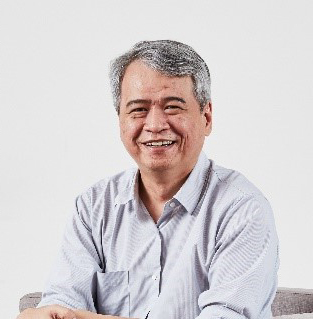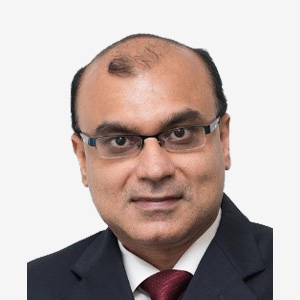Candidates will be introduced to pharmacokinetics, assessment of drug effect, and drug transport. Pharmacogenetics will be introduced as a source of interindividual variability of PK/PD. They will also learn drug therapy in special situations, and how clinical pharmacology is important in drug development. Practical applications, including the elements of the investigator’s brochure and the role of regulatory authorities in drug development and approval, will be included. At the end of the course, candidates should have an understanding of applications of clinical pharmacology in research, including study designs for clinical pharmacology-based studies.
The course focuses on basic statistical tools that are explicitly directed towards clinical investigations. This course will be integrated with various epidemiological study designs. It will cover a variety of topics ranging from descriptive statistics involving measurement scales of data and summary indices, to statistical estimation and inference using parametric and non-parametric methods. An introduction to simple linear regression models, as well as sample size and power calculations will also be given. Brief concepts of multi-variable analyses will also be introduced. No mathematical background is required.
This course provides a comprehensive overview of the design and planning of epidemiological studies. The course first introduces critical concepts related to observational studies before covering common study designs such as cohort studies and case-control studies. More specialized topics will also be covered, such as screening and diagnostic studies, systematic reviews and meta-analyses, and survey studies.
This course provides a broad overview of the design and planning of clinical studies. The course begins with an introduction to the research process before introducing various study types, including first-in-human, Phase 1 and dose-finding trials, Phase II trials, Phase III trials and cross-over trials. More advanced topics will also be covered, such as cluster randomized and stepped-wedged trials, adaptive trials, and real-world evidence studies.
In this course, issues in clinical trials, including blinding, randomisation, sample size, power, ethical, regulatory, and quality-of-life issues will be addressed. Interim and sequential analyses, analysis of multiple treatments and endpoints, stratification and subgroup analyses, as well as meta-analysis of randomized controlled trials will also be discussed. Although particular emphasis is given to the evaluation of treatment in Phase III clinical trials, early phase trials including preclinical pharmacokinetic and pharmacodynamic studies will also be covered.
This course will provide an overview of the ethical and regulatory issues related to conducting research with human subjects. It will introduce key ethical principles and their application to clinical research, codes of research ethics and ethical review boards e.g. the concepts of autonomy, consent, confidentiality, risk-benefit and distributive justice, conflicts of interest and ethical issues in various study designs. The course will also cover topics relating to scientific integrity, and the regulations governing clinical research, laboratory safety, good clinical practice and the responsibilities of investigators towards research subjects.
This course will enable clinical researchers to critically evaluate the outcomes, quality, and effectiveness of interventions and healthcare programs. It will provide a foundation for collecting, analyzing and interpreting data that influence decision making and resource allocation at both the patient and societal level. The course will integrate elements of epidemiology and statistics, and incorporate a diverse range of important subjects including survey and qualitative methods, decision and cost effectiveness analyses, and health technology assessment. Students will also be taught to critically appraise studies in health services research and to discuss their application across healthcare sectors. Finally, students will be given the opportunity to apply the practical tools they have learnt to address existing health issues.
Biomarkers are an important component of clinical trials, both as research outcomes in early phase trials and as indicators for patient inclusion in late phase trials. This course will provide an overview of biomarker discovery and testing through the whole clinical trial process. It will include an overview of the specific molecular technologies that are commonly involved in biomarker discovery (high-throughput genomics, proteomics, SNP analysis and tissue microarrays, among others). This will be followed by an explanation of the process of biomarker validation for diagnostic use in clinical trials. Finally, an overview of the process of analysis of validated biomarkers for patient diagnosis, prognostication or therapeutic decision-making in the context of late clinical trials.These aspects will be addressed with a mixture of introductory lectures and small-group paper discussions.
This course will help students develop the skills needed for effective communication of scientific information. Topics covered will include practical guidance on how to summarize salient information in a literature review, construct a coherent framework that would act as a basis for research enquiry, and how to effectively describe and discuss research findings. Sessions will also be devoted to the process of writing and submitting a grant proposal, and of publishing an original article in a journal.
























